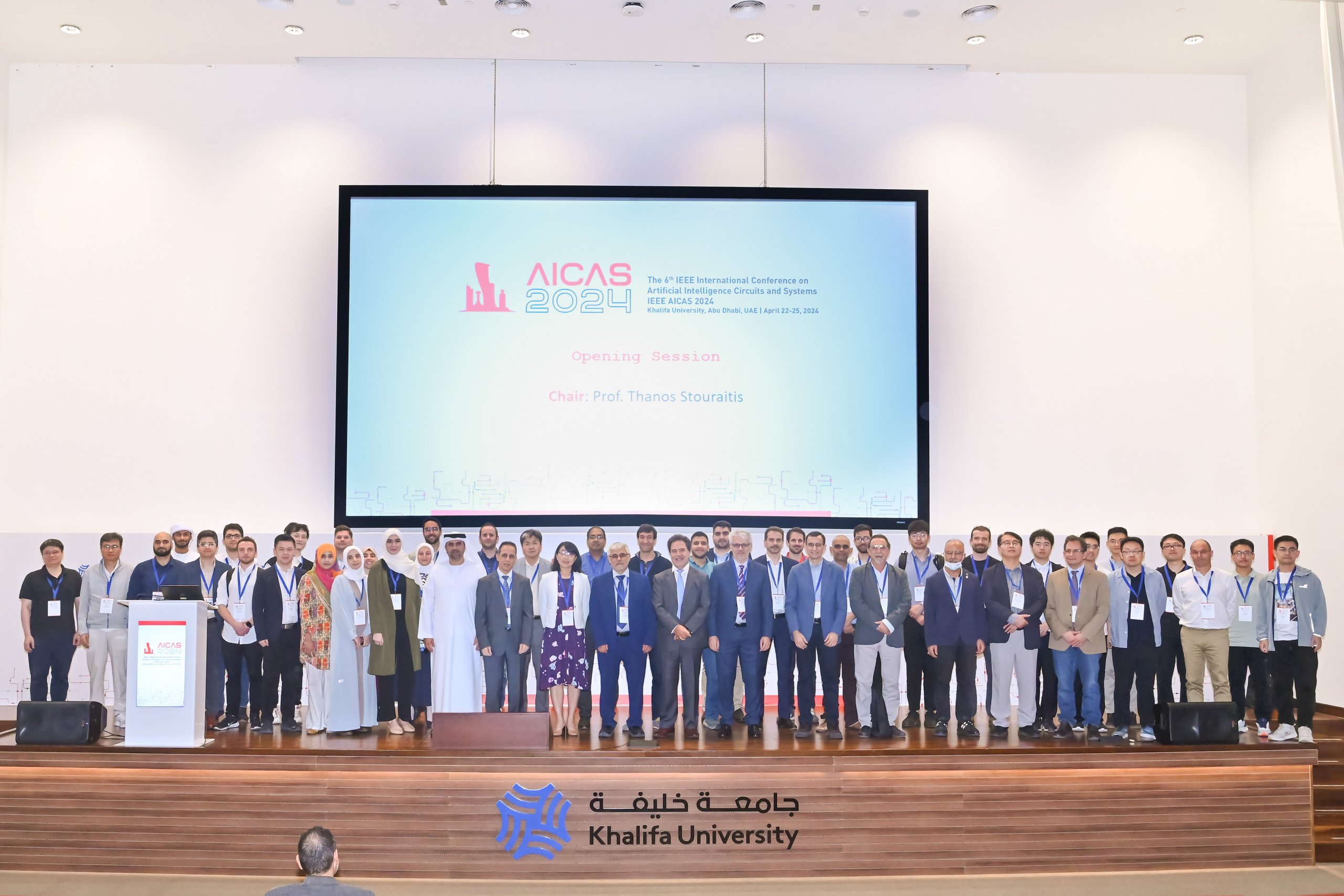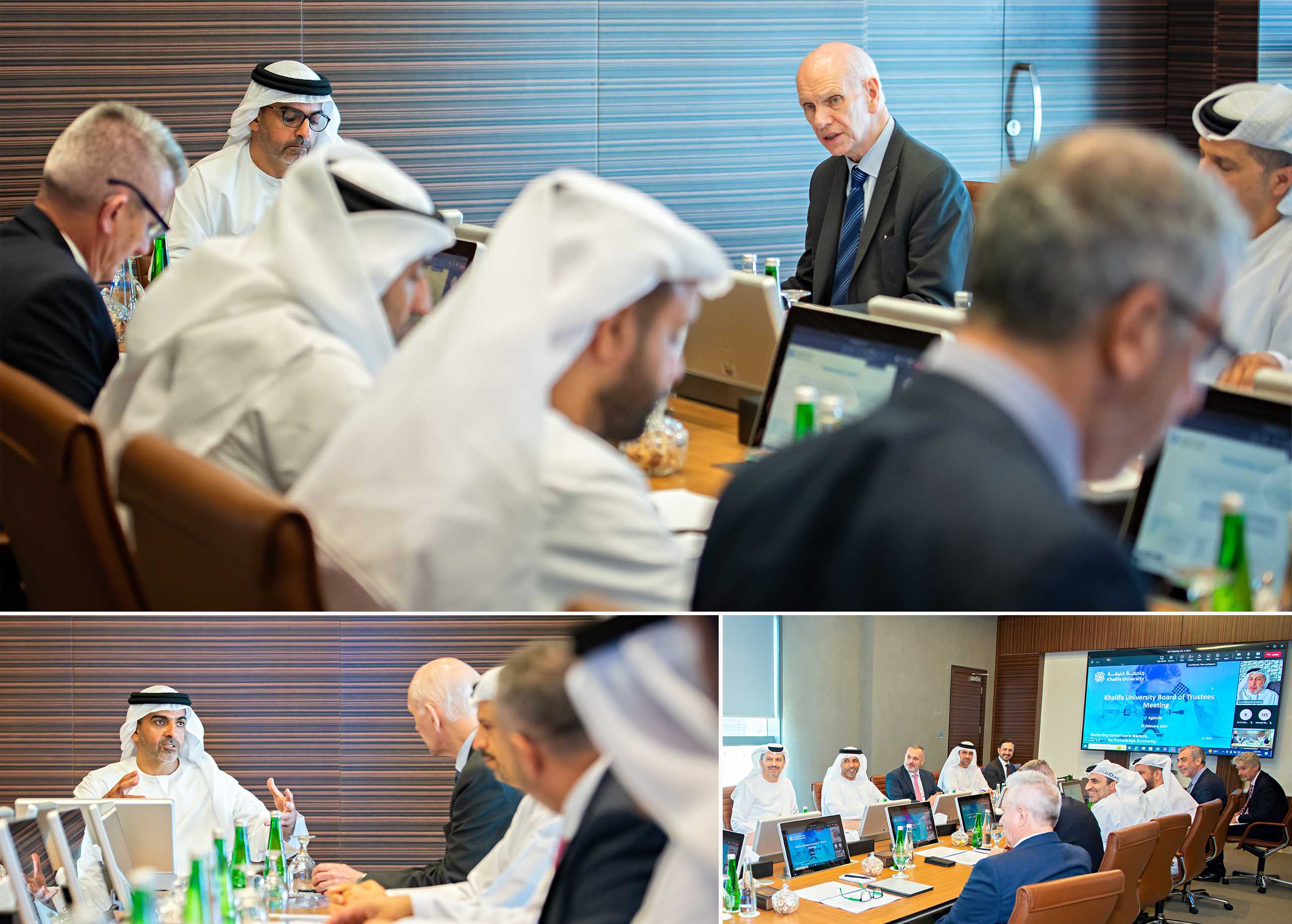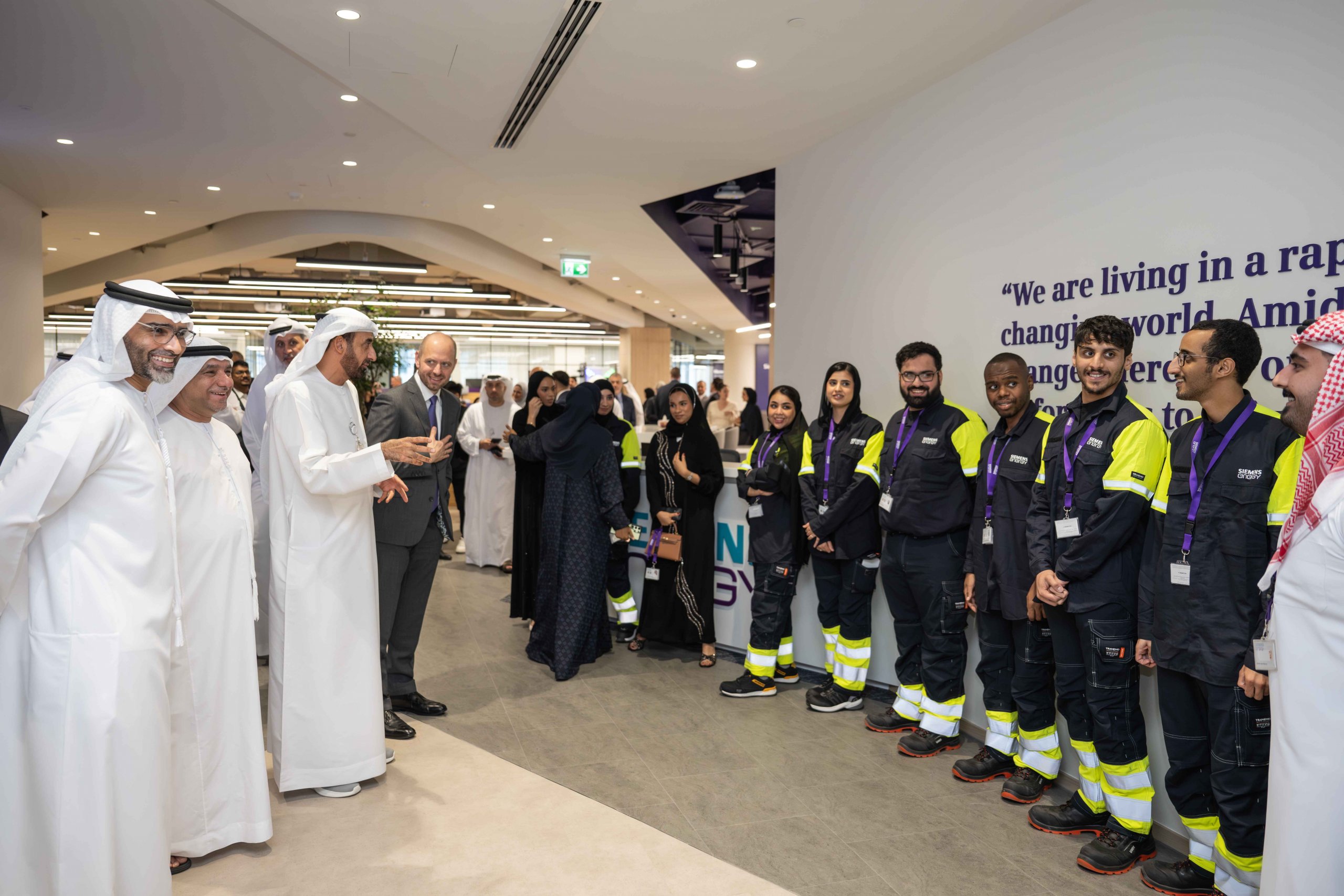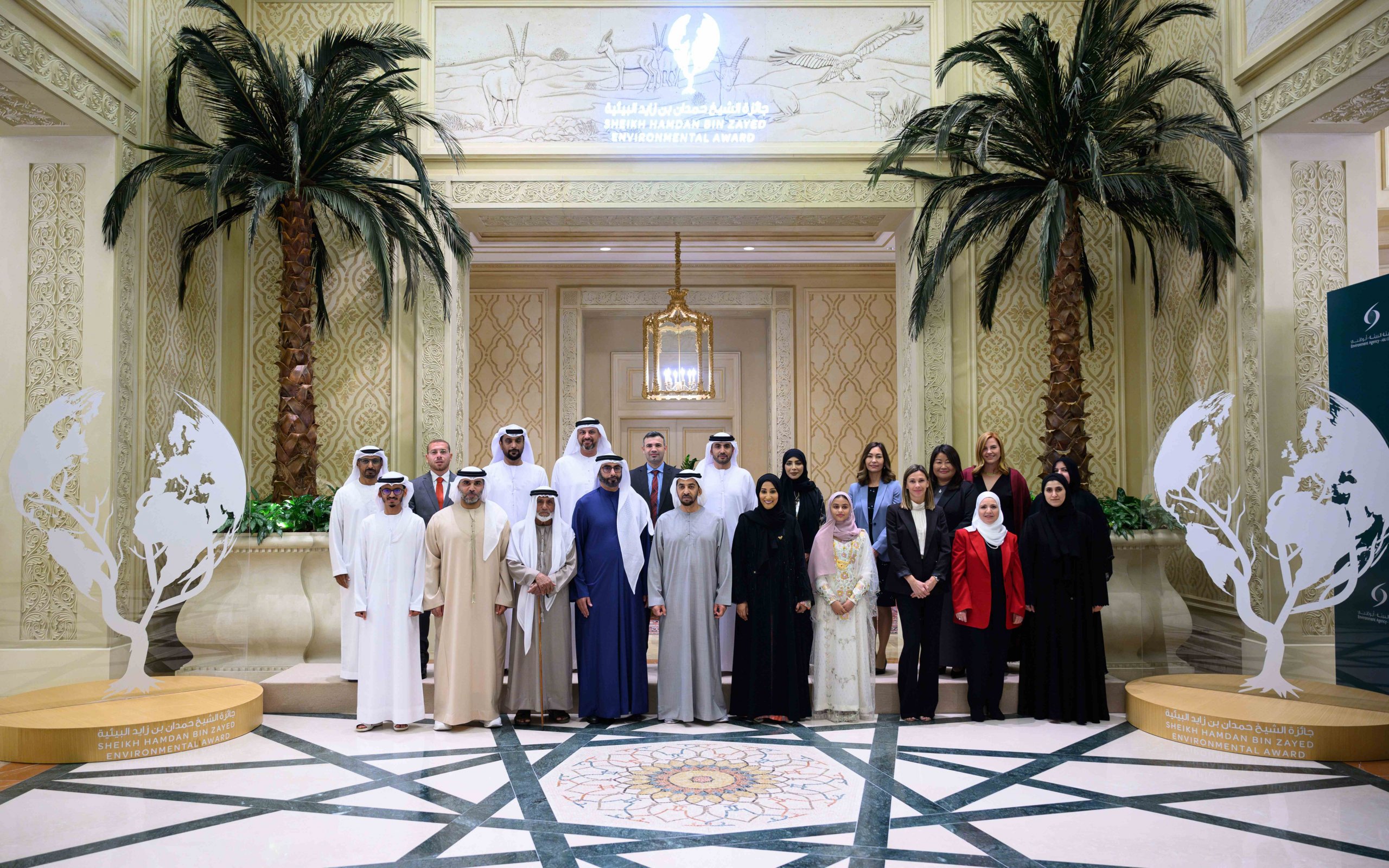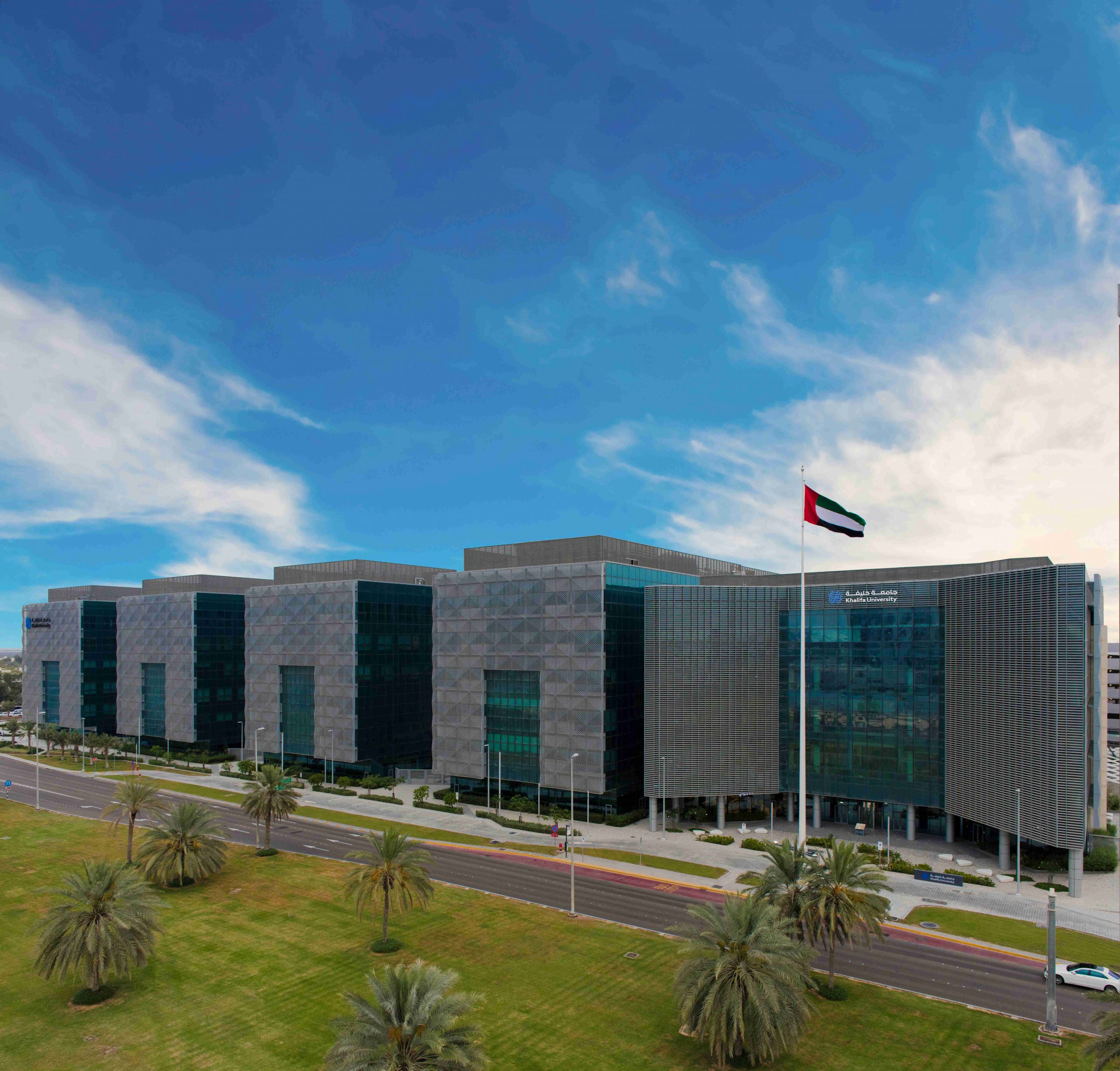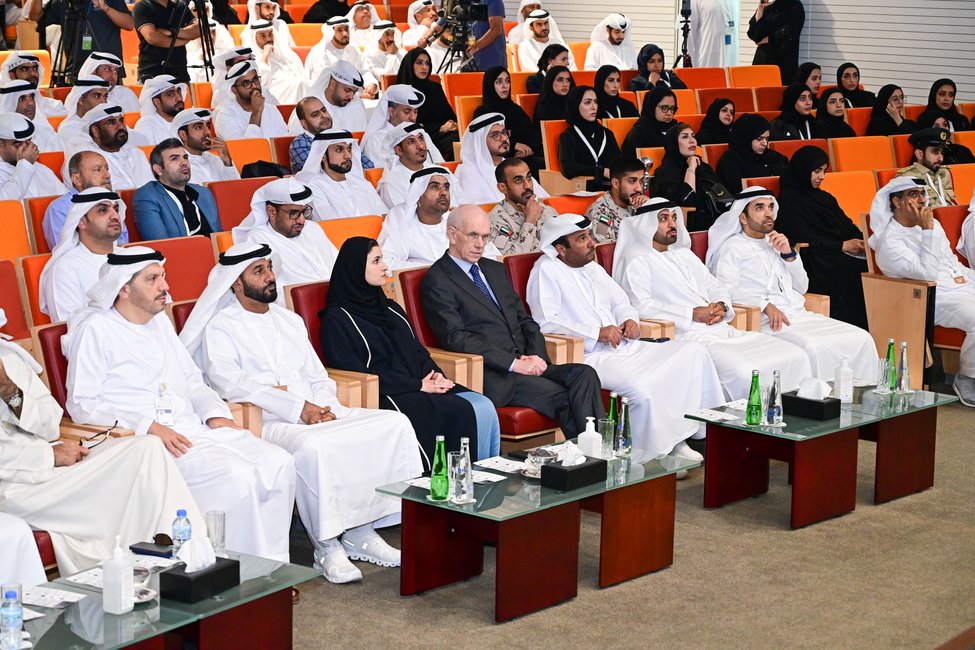
Forum Gathers International Scientists, Researchers and Industry Experts in Fields of Chemical, Biological, Radiological, Nuclear, and Explosives Materials
The first-ever National Forum for hazardous materials (HAZMAT) Experts, organized as a collaboration between the National Emergency Crisis and Disaster Management Authority (NCEMA), and Khalifa University of Science and Technology, launched today in Abu Dhabi, as part of the UAE’s endeavor to promote research, development and innovation to enhance the role of experts in the emergency and crisis management network.
Her Excellency Sarah Bint Yousif Al Amiri, Minister of State for Public Education and Advanced Technology, delivered the keynote address at the one-day forum held at the Khalifa University Main Campus. His Excellency Hamad Saif Al Kaabi, Director, Hazardous Materials Incidents Department, NCEMA, also addressed the gathering.
Minister Sarah bint Yousif Al Amiri, affirmed that the United Arab Emirates places special emphasis on research and development through the adoption of a comprehensive national system for research and development. This system enhances the role of experts and specialists and their readiness to work in various vital and priority fields. It supports research centers and laboratories in all national efforts to enhance existing sectors and develop new sectors. It also supports research efforts in terms of response and rescue capabilities, pre-planning and preparedness measures, studying potential scenarios and their impacts, testing hypotheses and solutions, and ultimately proving the results.
Her Excellency Al Amiri added that the Ministry of Industry and Advanced Technology plays an integrative role with the relevant government entities at the national level, such as the National Emergency Crisis and Disaster Management Authority, and academic and research institutions such as Khalifa University. Additionally, it strengthens partnerships with the private sector, which are supportive efforts to exchange knowledge and expertise in the field of research and development, and enhance the opportunity to shape a sustainable future in line with the developmental vision of the UAE, and enhance its regional and international competitiveness.
Her Excellency also highlighted the important national role of the National Emergency Crisis and Disaster Management Authority and the valuable information presented in the National Guide for Research and Studies on Hazardous Materials and Operations. She pointed out that these integrative efforts, in collaboration with the academic sector represented by Khalifa University, enhance the ability of national institutions to deal with crises and develop innovative solutions for their management. This strengthens the UAE’s capabilities to deal with various transformations and equip Emirati generations with the necessary expertise in these fields.
Scores of scientists, researchers and industry experts in chemical, biological, radiological, nuclear, and explosives (CBRNE) fields from across the world attended the forum to emphasize the importance of research in emergency and crisis management because of the evolving risk landscape. The Dubai Police Scientists Council provided some of the most important research and studies in the field of hazardous materials, while a panel discussion offered insights into the challenges and opportunities of research.
For his part, His Excellency Obaid Rashid Al Hosan Al Shamsi, Vice President of the NCEMA, emphasized the importance of the National Forum for Hazardous Materials Experts, which brings together a select group of experts and specialists to enrich the national system for emergency and crisis management with their specialized knowledge, stating “This forum aims to enhance our understanding of the necessary scientific knowledge in order to sustain the natural course of life by assessing and studying the risks and threats related to hazardous materials”.
His Excellency Al Shamsi added that the partners within the national system play a significant and vital role in managing hazardous materials incidents by employing their capabilities and resources to the highest standards and potentials. Their contributions greatly contribute to addressing numerous challenges and potential risks with proactive and high flexibility.
Dr. Arif Sultan Al Hammadi, Executive Vice President of Khalifa University, stated on this occasion: “Emergency and crisis management require adequate preparedness levels, which calls for research into possible scenarios from use of hazardous materials. We are delighted to partner with the National Emergency Crisis and Disaster Management Authority (NCEMA) to host this forum and we believe the knowledge exchange and discussions will benefit key stakeholders, especially decision-makers and regulatory agencies operating in this area.”
During the forum, The National Emergency, Crisis and Disaster Management Authority (NCEMA) presented details on the ‘National directory for research and studies of hazardous materials accidents and operations’, and the National Data Center offered information on the ‘Analytical platform of national resources for research centers, laboratories and experts for hazardous materials incidents’.
Khalifa University presented details on some of the most important research and studies in hazardous materials, while the UAE University offered information on the methods of selection and arbitration of research in this field. The Advanced Technology Research Council (ATRC) emphasized on the ‘Methods of selecting and funding research and studies’, while the contribution by the Emirates Center for Strategic Studies and Research was also highlighted.
The panel discussion covered areas including scientific research (in all disciplines, public health, animal health, environment), risk assessment, prediction and modeling, technologies to improve detection and response, artificial intelligence, studies on foresight, comparison and best practice, and, strategic studies, as well as behavioral and cultural studies influencing emergency response in general.
The forum aimed to promote networking and collaboration among different stakeholders to brainstorm and capture priority areas for conducting research and studies in order to solve challenges and/or improve emergency management such as prevention, preparedness, mitigation, response, and recovery.
Clarence Michael
English Editor Specialist
23 June 2023


